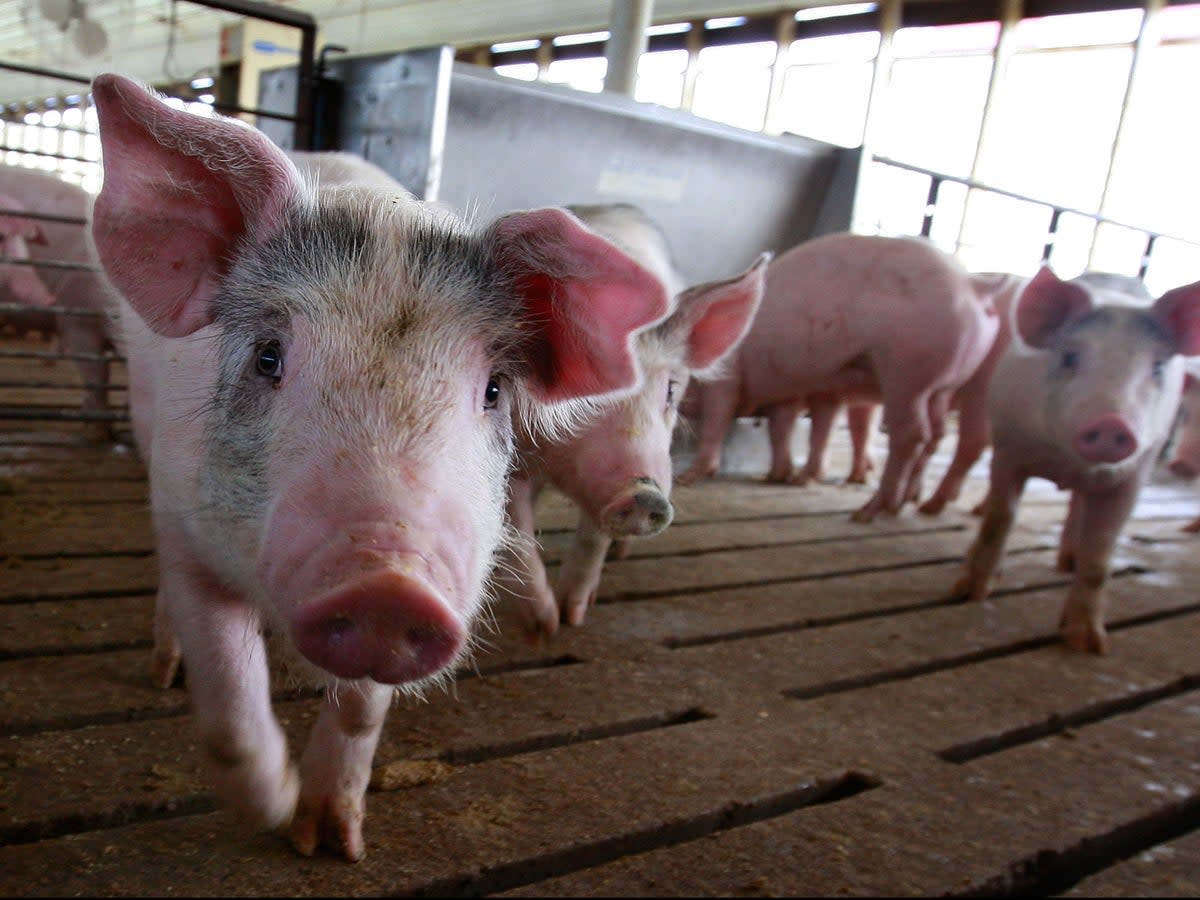What are the symptoms of swine flu and how can I protect myself?

The first flu strain H1N2 – commonly known as swine flu – has been detected in a human based in the UK, the UK Health Security Agency (UKHSA) has announced.
According to the UKHSA, influenza A(H1N2)v is similar to flu viruses currently circulating in pigs in the UK. It is not yet known how transmissible it is. But since 2005, there have been 50 human cases reported globally.
It was through a routine national flu surveillance conducted by the Royal College of General Practitioners and UKHSA, that a person who attended a GP appointment in Yorkshire, due to respiratory symptoms, was identified. The source of the infection remains unknown and under investigation.
But what is swine flu? Should you be worried, and what symptoms should you be looking out for?
What is swine flu?
Dr Bruno Silvester Lopes, lecturer in microbiology at Teesside University, said: “Swine flu is a respiratory illness in pigs and birds that is mainly caused by type A influenza viral strains H1N1, H1N2 and H3N2.
“Some of these strains can occasionally infect humans. In the 2009 swine flu pandemic, researchers observed that strains in humans were similar to those seen in pigs – which is how swine flu derives its common name. It would be more appropriate to call it the ‘influenza A(H1N1) virus’.
“It is important to note that recent cases of swine flu in the North Yorkshire GP surgery differ from human cases of the flu in the past, and it is similar to viruses observed in UK pigs.”
What are the myths and misconceptions around the disease?
Lopes first explains that swine flu in humans is not caused by pigs. “People may also think it is a deadly disease, but it is treatable and has a death rate of only 1%,” he said.
“We must also remember that flu can target anyone – not just people who are sick or have a weakened immune system. Equally, those who maintain a healthy lifestyle can also catch this flu.”
Many also have the misconception that being exposed to cold weather can give them the flu, Lopes added. Swine flu outbreaks occur mainly during late autumn or winter, but they can occur anytime during the year, no matter the weather.
“Swine flu is not a foodborne disease, as it spreads from droplets in the air and contact with surfaces.”
What are the symptoms and how can it be treated?
“We need to be mindful of symptoms such as fever, dry cough, headache, dizziness, sneezing, sore throat, chills, exhaustion, and runny nose. In rare cases, reports of vomiting, diarrhoea, and neurological issues have also been observed,” Lopes said.
“You don’t always need antivirals to treat the flu. Simply taking bed rest and drinking lots of water may be enough to relieve the symptoms. If medications are prescribed, they must be taken within 24-48 hrs from the onset of symptoms and must be reserved for people with serious conditions.”
How can we protect ourselves?
To protect each other, Lopes advises people be aware that risk of transmission goes up if you spend a lot of time with others in a closed environment with close proximity.
“You should also avoid going to work or school if you have flu-like symptoms,” he said.
“Whenever you cough or sneeze, cover your mouth with a tissue and place any used tissues in a garbage disposal. If you don’t have any tissues on hand, cover your mouth and nose with your hand or a bent arm.
“Regularly wash your face and hands, and practise good hygiene. You should also make sure everything you touch is clean, sanitise any surfaces, and observe any medical advice given by your doctor.”
Is there a vaccine?
The seasonal flu vaccines don’t protect against swine flu, but there is a specific one for certain groups, like children and pregnant women.
Lopes said there are common myths include that the flu jab uses a large needle, that it’s not safe, and it has a lot of side effects. However, this is not the case.
“The needle used is only a few millimetres long, so there is no need to worry. You might experience mild side effects, and vaccines are there to help prevent the illness,” he said. “Vaccines are designed for all groups, including pregnant women, so there is nothing to worry about. For those worried about religious beliefs, the jab doesn’t contain any pork products.
“The influenza vaccine does not contain the live virus so you can’t catch the flu from it. Vaccination is effective but may not have 100% efficacy. It can depend on various factors like the age and health of a person.”
Should people be worried about it?
Lopes said: “There is no need to worry at this stage, but if you are worried then it is best to follow the UKHSA guidelines and avoid any contact with people experiencing the symptoms in order to limit the spread of disease.”

